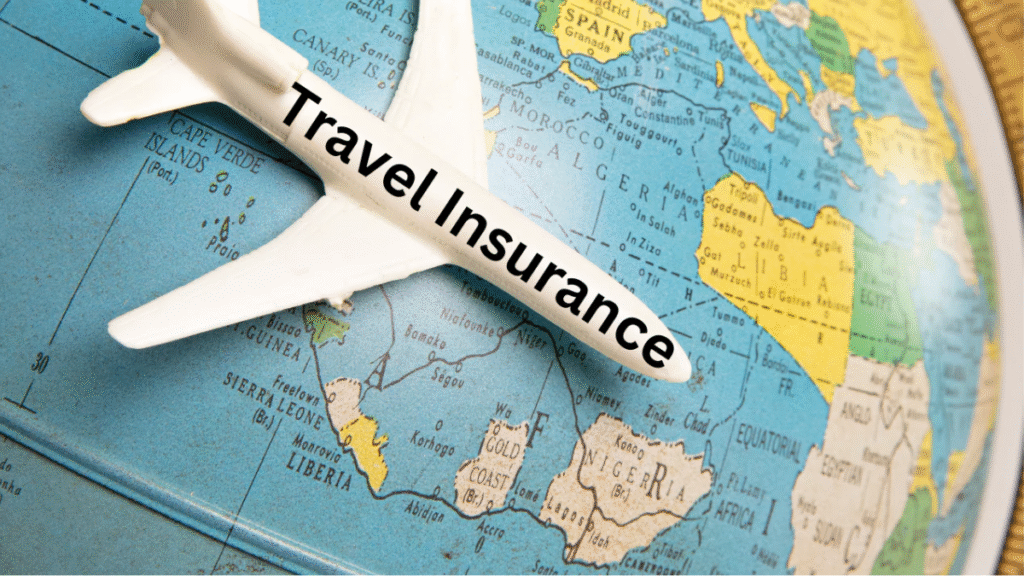Traveling is one of life’s most enriching experiences, offering new cultures, sights, and adventures. However, trips can sometimes be unpredictable, and unexpected events such as medical emergencies, flight cancellations, or lost luggage can turn a dream vacation into a stressful experience. This is where travel insurance comes in. Travel insurance is designed to protect travelers from unforeseen events, offering financial protection, peace of mind, and support during emergencies. This article explores the benefits of travel insurance and why it is an essential part of planning any trip.
What is Travel Insurance?
Travel insurance is a type of insurance policy that provides coverage for financial losses and emergencies that can occur while traveling. Policies can be tailored for domestic or international travel and may cover a variety of situations, including medical emergencies, trip cancellations, lost baggage, and travel delays. Travel insurance ensures that travelers are financially protected and can access assistance services, minimizing stress during unexpected situations.
Types of Travel Insurance Coverage
Travel insurance can vary based on the provider and plan, but most policies include some combination of the following coverage types:
1. Medical Coverage
Medical emergencies abroad can be expensive. Travel insurance covers hospitalization, doctor visits, medications, and sometimes emergency evacuation. This is especially important for international travel, where your regular health insurance may not provide coverage.
2. Trip Cancellation and Interruption
Life is unpredictable. Travel insurance can reimburse non-refundable trip expenses if you need to cancel or cut short your trip due to illness, accidents, natural disasters, or family emergencies.
3. Lost or Delayed Baggage
Losing luggage can be stressful and inconvenient. Travel insurance covers the cost of lost, stolen, or delayed baggage, helping travelers replace essential items quickly.
4. Travel Delays
Flight delays, missed connections, or extended layovers can disrupt your plans. Travel insurance may reimburse expenses like accommodation, meals, and transportation during unexpected delays.
5. Emergency Evacuation and Repatriation
In serious medical situations, travelers may need emergency transportation to the nearest medical facility or back to their home country. Travel insurance covers these often expensive services.
6. Accidental Death or Disability
Some policies provide compensation in case of accidental death or permanent disability during the trip, giving financial support to travelers or their families.
7. Adventure and Sports Coverage
For those engaging in activities like skiing, scuba diving, or trekking, specialized travel insurance can cover accidents related to adventure sports, which may not be included in standard plans.
Key Benefits of Travel Insurance
Travel insurance provides multiple advantages that ensure safe and stress-free trips. Understanding these benefits helps travelers make informed decisions.
1. Financial Protection Against Unexpected Expenses
Medical emergencies, cancellations, and lost luggage can lead to significant unplanned expenses. Travel insurance safeguards your finances by covering these costs, preventing a minor mishap from becoming a major financial burden.
2. Peace of Mind
Knowing that you have coverage for medical emergencies, trip cancellations, and other unexpected events allows you to enjoy your vacation without constant worry. Peace of mind is a significant intangible benefit, ensuring that your travel experience remains enjoyable and stress-free.
3. Access to 24/7 Assistance Services
Many travel insurance policies provide access to 24/7 emergency assistance services. Whether it’s locating a nearby hospital, arranging a medical evacuation, or helping with travel disruptions, these services ensure you have support when you need it most.
4. Protection from Trip Cancellations and Delays
Unexpected events like illness, severe weather, or airline strikes can lead to cancellations or delays. Travel insurance reimburses pre-paid non-refundable expenses, ensuring you don’t lose money due to circumstances beyond your control.
5. Coverage for Lost or Stolen Belongings
Traveling with expensive electronics, documents, or valuables carries the risk of loss or theft. Travel insurance compensates for lost or stolen items, helping you replace essentials and continue your trip comfortably.
6. Medical Coverage Abroad
Medical care in foreign countries can be costly, especially in countries where healthcare expenses are high. Travel insurance ensures you receive necessary treatment without worrying about overwhelming bills.
7. Flexibility for Adventure Travelers
Adventure travelers face higher risks of accidents. Specialized coverage for adventure activities ensures that even extreme sports participants are financially protected, encouraging safer exploration.
8. Support in Legal or Emergency Situations
Travel insurance may also cover legal assistance, bail bonds, or repatriation costs in case of emergencies, offering comprehensive support beyond standard medical or trip coverage.
How Travel Insurance Saves Money
While some travelers may consider travel insurance an additional expense, it can save substantial money in emergencies:
- Medical emergencies abroad can cost thousands of dollars. Insurance can cover hospitalization, surgery, and emergency transportation.
- Flight cancellations due to illness or weather can result in loss of prepaid tickets, hotel bookings, and tours, which insurance can reimburse.
- Lost luggage can force travelers to purchase essentials. Insurance helps cover these unexpected costs.
In essence, the cost of travel insurance is minimal compared to potential financial losses during emergencies.
Tips for Choosing the Right Travel Insurance
Selecting an appropriate travel insurance plan is crucial for maximizing benefits. Consider the following tips:
- Assess Your Needs: Determine the type of coverage you require based on your destination, trip duration, and activities planned.
- Check Policy Limits: Ensure that the medical, baggage, and trip cancellation limits are adequate for your travel plans.
- Understand Exclusions: Be aware of activities or situations not covered by the policy to avoid surprises during claims.
- Compare Providers: Review different insurance companies and policies for coverage, cost, and customer reviews.
- Verify Emergency Services: Ensure the policy provides 24/7 assistance, especially if traveling to remote or foreign locations.
- Purchase Early: Buy travel insurance soon after booking your trip to cover cancellations or unexpected events before departure.
Common Misconceptions About Travel Insurance
Despite its benefits, some travelers avoid travel insurance due to misconceptions:
- “I’m healthy; I don’t need insurance.” Medical emergencies and accidents can happen to anyone, regardless of age or fitness.
- “It’s too expensive.” Travel insurance is a small fraction of total trip costs compared to potential losses.
- “Credit cards cover travel mishaps.” While some credit cards offer limited travel benefits, they often do not cover medical emergencies, repatriation, or adventure activities.
- “It’s only for international travel.” Domestic travelers can also face cancellations, accidents, or emergencies, making insurance valuable even for local trips.
Addressing these misconceptions ensures travelers make informed choices for their safety.
How to File a Travel Insurance Claim
Filing a claim is straightforward if done correctly:
- Keep Documentation: Maintain receipts, medical reports, police reports (if applicable), and any proof of losses.
- Notify Your Insurer Promptly: Inform the insurance company as soon as an incident occurs.
- Complete Claim Form Accurately: Provide all required information and supporting documents.
- Follow Up: Track your claim’s progress and respond promptly to any insurer requests.
- Understand Claim Approval: Be aware of coverage limits, exclusions, and the appeal process if needed.
Following these steps increases the likelihood of faster claim approval.
Conclusion
Travel insurance is an indispensable part of responsible travel planning. It provides financial protection, peace of mind, and access to essential services during emergencies, ensuring that travelers can enjoy their trips without unnecessary stress. From medical emergencies to lost baggage, travel insurance safeguards against unexpected events, making trips safer and more enjoyable. By choosing the right policy, understanding coverage, and preparing in advance, travelers can embark on their adventures with confidence and security.
FAQs
1. Is travel insurance necessary for short trips?
Yes, even short trips can involve unexpected events like medical emergencies, cancellations, or lost luggage. Travel insurance ensures protection regardless of trip duration.
2. Does travel insurance cover pre-existing medical conditions?
Some policies offer coverage for pre-existing conditions, while others may exclude them. Always review policy terms before purchase.
3. Can I purchase travel insurance after booking my trip?
Yes, but it’s best to buy travel insurance as soon as you book your trip to cover cancellations or unforeseen events before departure.
4. Does travel insurance cover adventure sports?
Standard policies may not cover high-risk activities. Specialized adventure coverage is recommended for activities like skiing, scuba diving, or trekking.
5. How do I know the insurance company is reliable?
Check reviews, ratings, claim settlement ratios, and licensing status to ensure the provider is reputable and trustworthy.



